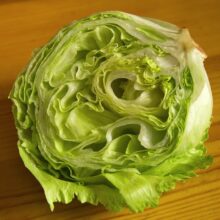Diet-based articles:
Introduction
In today’s fast-paced world, managing a healthy diet has become a daunting task. With the constant influx of new fad diets and conflicting expert opinions, it’s easy to get lost in the sea of misinformation. However, a well-planned diet can work wonders for one’s overall health and wellbeing. In this article, we’ll delve into the world of diet-based articles, exploring the benefits, challenges, and best practices for creating informative and engaging content.
Benefits of Diet-based Articles
Diet-based articles offer numerous benefits, including:
Improved Health and Nutrition
By providing readers with credible information on healthy eating, diet-based articles can contribute to improved health and nutrition. Well-researched content can help individuals make informed decisions about their diet, leading to a reduction in chronic diseases and an overall boost in wellbeing.
Increased Credibility
Writing high-quality diet-based articles can establish writers as authorities in their field. By providing accurate and unbiased information, experts in the field of nutrition and health can demonstrate their expertise and build credibility with readers.
Engaging Content
Diet-based articles can be particularly engaging, as they often revolve around topics that are relevant to readers’ daily lives. By incorporating real-life examples, personal anecdotes, and practical tips, writers can create content that is both informative and entertaining.
Challenges in Creating Diet-based Articles
While diet-based articles offer numerous benefits, there are several challenges that writers face in creating high-quality content:
Unbiased Information
Providing unbiased information is crucial in diet-based articles. Writers must separate fact from fiction, avoiding the temptation to promote fad diets or perpetuate misinformation.
Complex Nutrition Information
Nutrition is a complex and multifaceted topic, making it essential for writers to have a solid understanding of the subject matter. Misconceptions can lead to ineffective or even harmful advice, putting readers at risk of adverse effects.
Best Practices for Creating Diet-based Articles
To overcome the challenges and create engaging, informative content, writers should follow these best practices:
Research and Fact-Checking
Conduct thorough research, consulting credible sources and fact-checking information to ensure accuracy.
Use Real-Life Examples and Personal Anecdotes
Incorporating real-life examples and personal anecdotes can make the content more relatable and engaging.
Focus on General Principles
Instead of promoting a specific diet or fad, focus on general principles, such as portion control, mindful eating, and incorporating a variety of whole foods into one’s diet.
Conclusion
Diet-based articles have the potential to positively impact readers’ lives, providing them with the information they need to make informed decisions about their diet. By understanding the benefits, challenges, and best practices, writers can create high-quality content that educates and inspires readers. By doing so, we can work together to promote a culture of healthy eating and overall wellbeing.





